#algerian war of independence
Text
there are actually TWO countries that have used nuclear weapons in war. the second is france, which did “strategic nuclear testing” in algeria during and after the algerian war of independence.
15K notes
·
View notes
Text
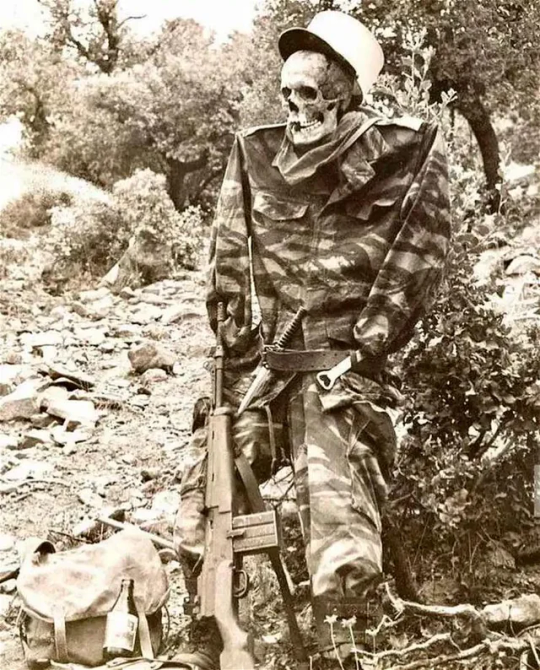
A scarecrow made from a French Foreign Legion uniform and a human skull in Algeria, 1958
71 notes
·
View notes
Text
An interesting article about how France is slowly rehabilitating Jean-Marie Le Pen. Not for everything he did just for the part where he tortured Algerians.
“The current erasure of the testimonies condemning Jean-Marie Le Pen, including by those who dislike him, is allowed by two things: Algerian testimonies are seen as automatically illegitimate, so is the recognition of the crime committed by the colonial republic.”
P.s: Just so you know the day Le Pen dies I’m having a huge party. I will insult anyone who think partying is wrong and anyone who goes “but he was a human too even if we disagree” screw you. He deserves a painful death and then he deserves to burn for eternity.
14 notes
·
View notes
Text
Gideon Rachman is chief foreign affairs columnist for the Financial Times and the 2016 winner of the Orwell Prize for Journalism. Even when I don't entirely agree with him I find his writing insightful.
In this column (archived) he compares France's 7.5 year colonial war in Algeria with Russia's neocolonial invasion of Ukraine.
Some excerpts...
France cannot be France without greatness,” wrote Charles de Gaulle in the opening of his memoirs. His nation, he insisted, must always be in “the first rank”.
Vladimir Putin feels the same way about Russia. Back when I was still able to visit that country, Fyodor Lukyanov — a foreign policy thinker close to Putin — told me that the Russian president was driven by the fear that his nation might permanently lose its status as a great power.
That fear and paranoia reached its tragic apogee with the full-scale invasion of Ukraine in 2022. But instead of restoring Russian national grandeur, Putin’s war has disgraced and isolated his nation.
Unlike Putin, de Gaulle’s belief in national greatness did not depend on the subordination of a neighbour. He ended France’s war in Algeria and accepted Algerian independence in 1962. By contrast, even after 30 years of Ukrainian independence, Putin could not accept Ukraine’s right to shape its own destiny.
Nobody would accuse the late President Charles de Gaulle of being soft on French patriotism; he had been the leader of the Free French forces during World War II. But de Gaulle had the sense to see that France was in a no-win situation in Algeria and this was leading to deep divisions in France itself. There was even a failed insurrection against de Gaulle by some French generals after he had entered into negotiations with the Algerian independence movement.
Algeria became independent in 1962 despite bitter opposition by some in France. Resistance was punctuated by acts of terrorism perpetrated by ethnic French former residents of Algeria. But de Gaulle knew that no matter how much disorder would ensue, saying good-bye to Algeria was the best option in the long run for France.
Where de Gualle decided to look to the future, Putin gradually sinks in the quicksand of the past. De Gaulle said adieu to colonialism but Putin refuses to say до свидания to neocolonialism.
As Gideon Rachman says in his FT piece...
Freed of its colonial burden in Algeria, France was able to forge a new future. Modern France is not a superpower, but it remains a leader in Europe. It is a global player in culture, diplomacy, business, sport and military affairs. France retains some of the badges of great-power status, such as nuclear weapons and a permanent seat on the UN security council. But its grandeur today rests on culture and the global respect it inspires, rather than on raw power or territory.
Putin, by contrast, was unable to imagine Russia as a post-imperial power. He still defines Russian greatness through his country’s ability to control territory and inspire fear. It was de Gaulle who was born in the 19th century, but it is Putin who clings to a 19th-century imperialistic view of national grandeur.
In the 21st century, however, the bloodbath that Putin has unleashed in Ukraine has inspired disgust rather than admiration in the rest of Europe, isolating Russia from its neighbours and reducing its influence in the wider world.
[ ... ]
Putin has been unable to separate his vision of national grandeur from his personal power and wealth. He clings on in the Kremlin. Those who disagree with his policies are beaten up in the streets, imprisoned, driven into exile or die in suspicious circumstances. Russia needed its own de Gaulle. Instead, it has ended up with a pale imitation of Ivan the Terrible.
Perhaps a Russian version of de Gaulle would be good, but a Russian version of Atatürk would be better. Somebody needs to drag Russia, screaming and kicking, from the 18th century into the 21st century.
#invasion of ukraine#gideon rachman#vladimir putin#neocolonialism#ukraine#charles de gaulle#algeria#colonialism#algerian war of independence#россия#владимир путин#путин хуйло#путлер#агрессивная война россии#неоколониализм#военные преступления#нет войне#путин – это лжедмитрий iv а не пётр великий#геть з україни#вторгнення оркостану в україну#україна переможе#будь сміливим як україна#слава україні!#героям слава!
1 note
·
View note
Text
Tocqueville in Algeria

"Great events have just taken place in Algeria; we can believe that others are still in preparation. So the time is ripe, Monsieur, to do as you wish and tell you what I know about Algiers. I do so all the more willingly because, although there has been much discussion about this country, very little is understood about it..."
-Alexis de Tocqueville, 1st Letter on Algeria
Alexis de Tocqueville is widely considered to be the Father of American Liberalism. A French aristocrat with deep affinities towards the liberalizing movements of his day, Tocqueville is most famous for his book Democracy in America which described the emerging state of American society soon after the War of Independence.
What he is less well known for is his role in the colonization of Algeria, being one of its most influential advocates and forwarding a mixed policy of "partial colonization" and "total domination" which mixed the purchase of land for French settlers with the burning of crops, mass detainment of women and children, and destruction of "everything that resembles a permanent aggregation of population or, in other words, a town.”
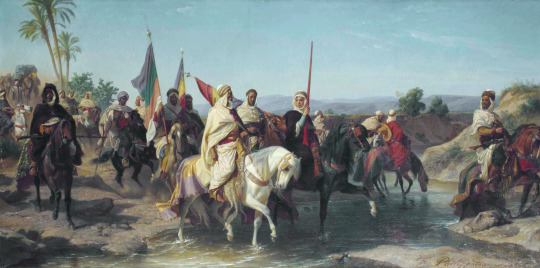
Previously unpublished, Tikhanov Library is proud to announce for the first time the translation of Tocqueville's writings on Algeria into English.
Read Alexis de Tocqueville's "First Letter on Algeria" on our substack:
https://tikhanovlibrary.substack.com/p/alexis-de-tocquevilles-first-letter
Or support us and future translations like this by buying the complete collection of his writings in paperback:
https://tinyurl.com/u8fckmah
This book and more are available as paperback and ebook on our website at www.tikhanovlibrary.com
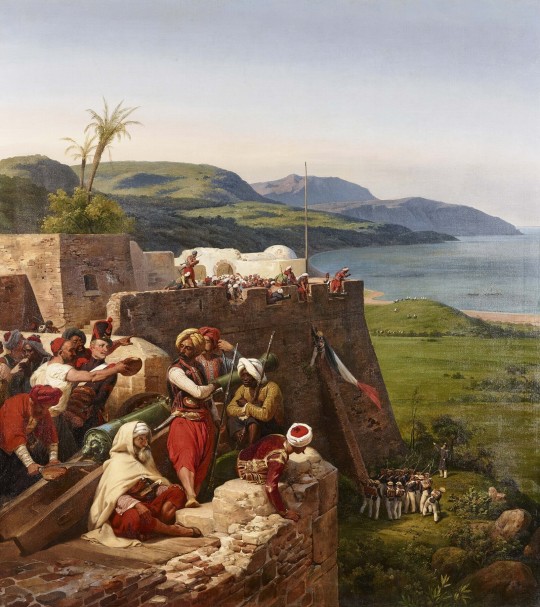
#alexis#tocqueville#alexis de tocqueville#algeria#algerian independence#colonialism#france#genocide#book#bookstagram#bookblr#dark acamedia#academic#academia#mediterranean#war
2 notes
·
View notes
Text
Imagine getting paid to write an “analysis” like this. Imagine having the historical knowledge of a newborn child.

#vietnam war korean war greek civil war sino-soviet split algerian war iran-iraq war afghanistan war yugoslav wars congo wars#bangladesh independence war invasion of iraq cuban revolution iranian revolution syrian war lebanese war war on drugs ethiopian civil war#nothing happened between august of 45 and february of 22#history is over after all
3 notes
·
View notes
Text

what a non sequitur. how is any of that implied by the original post
#i assume the person making parallels with historical events... is aware of how the historical events are connected with the present!#like ah yes im sure this person talking about the algerian war of independence so positively is unaware of ongoing french imperialism in#north africa. like
0 notes
Text
#algerian war#algeria war of independence#algeria#masculinity#independence struggle#2015#internet archive#college paper
0 notes
Text
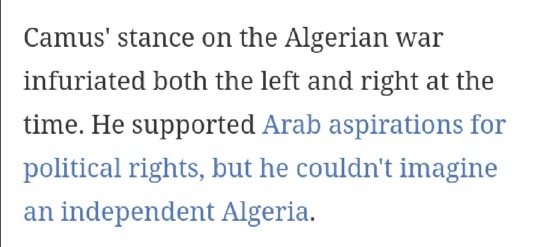
God if infuriating both the left and right isn't their favorite hobby
#By them i mean mishima#Don't mind me i'm just thinking because the algerian war of independence came up on the quiz show yesterday
0 notes
Text
I do not want, you may well understand, to proceed today to a critique of the colonial system. I do not intend as a colonized man, speaking to colonized people, to demonstrate that the colonial state is an abnormal, inhuman and reprehensible state. It would be grotesque on my part to want to convince you of the unacceptable nature of colonial oppression. However, I would like to focus my reflections on the violence integral to colonial oppression.
The colonial regime is a regime instituted by violence. It is always by force that the colonial regime is established. It is against the will of the people that other peoples more advanced in the techniques of destruction or numerically more powerful have prevailed.
I say that such a system established by violence can logically only be faithful to itself, and its duration in time depends on the continuation of violence.
But the violence which is in question here is not an abstract violence, it is not only a violence perceived by the spirit, it is also a violence manifested in the daily behaviour of the colonizer towards the colonized: apartheid in South Africa, forced labour in Angola, racism in Algeria. Contempt, a politics of hate, these are the manifestations of a very concrete and very painful violence.
Colonialism, however, is not satisfied by this violence against the present. The colonized people are presented ideologically as a people arrested in their evolution, impervious to reason, incapable of directing their own affairs, requiring the permanent presence of an external ruling power. The history of the colonized peoples is transformed into meaningless unrest, and as a result, one has the impression that for these people humanity began with the arrival of those brave settlers.
Violence in everyday behaviour, violence against the past that is emptied of all substance, violence against the future, for the colonial regime presents itself as necessarily eternal. We see, therefore, that the colonized people, caught in a web of a three-dimensional violence, a meeting point of multiple, diverse, repeated, cumulative violences, are soon logically confronted by the problem of ending the colonial regime by any means necessary.
[...]
In certain colonies, the violence of the colonized is the last gesture of the hunted man, meaning that he is ready to defend his life. There are colonies which fight for freedom, independence, for the right to happiness. In 1954, the Algerian people took up arms because at that point the colonial prison became so oppressive that it was no longer tolerable, because the hunt was definitely on for Algerians in the streets and in the countryside and because, finally, it was no longer a question for the Algerian of giving a meaning to his life but rather of giving one to his death.
[...]
What we are saying is that we need to close our ranks. It is necessary that our voice should be powerful not only by being vigorous but also for the concrete measures that could be taken against this or that colonial state.
[...]
No, the violence of the Algerian people is neither a hatred of peace nor a rejection of human relations, nor a conviction that only war can put an end to the colonial regime in Algeria.
The Algerian people have chosen the unique solution that was left to them and this choice will hold firm to us.
Frantz Fanon - Why We Use Violence, address to the Accra positive action conference, 1960 (translated by Robert J. C. Young)
520 notes
·
View notes
Text
I'm not Palestinian
I'm Algerian-Tunisian. My family survived and didn't survive the french colonialism, occupation and attempted genocide while the West was looking away. Israel was supporting France during our independence war. I've heard stories from my Algerian grandmother. I saw how horrified she was when I explained to her what they were doing in Gaza. I listened when she told me that she lived that too. But my family's tragedy was just one in millions. And when I see bloodlines erased in Gaza, I tell myself "oh it lasted 132y for us it could've been your family" and because I can't stand by when history is repeating itself I stand with Palestine
In that way, I'm also Palestinian
#palestine#free gaza#free palestine#from the river to the sea palestine will be free#gaza#gaza strip#gazaunderattack#genocide#current events#imperialism#fuck israel#human rights#geopolitics#palestinian lives matter#colonization#solidarity with palestine#don't look away
380 notes
·
View notes
Photo
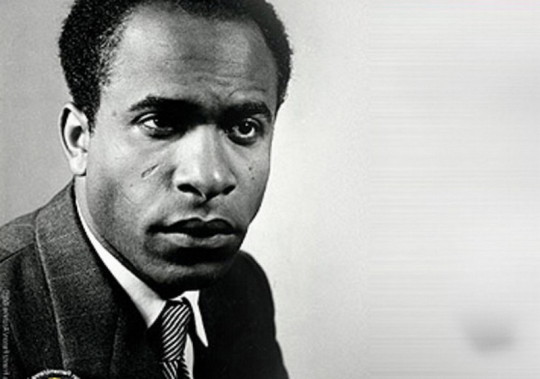
On this day, 20 July 1925, Frantz Omar Fanon, psychiatrist, revolutionary and pioneering anti-colonialist theorist was born in the French colony of Martinique. Fanon served in the Free French Army during World War II in North Africa, and like many Black colonial troops, experienced racism. Living in Algeria he supported the independence movement until he was forced to leave the country, at which point he became an ambassador for the Algerian National Liberation Front. His seminal works include 'Black Skin, White Masks' 'The Wretched of the Earth', and focused not just on the politics and economics of colonialism but also its internal and psychological effects. More information, sources and map: https://stories.workingclasshistory.com/article/9275/frantz-fanon-born https://www.facebook.com/photo.php?fbid=664955625677656&set=a.602588028581083&type=3
218 notes
·
View notes
Text
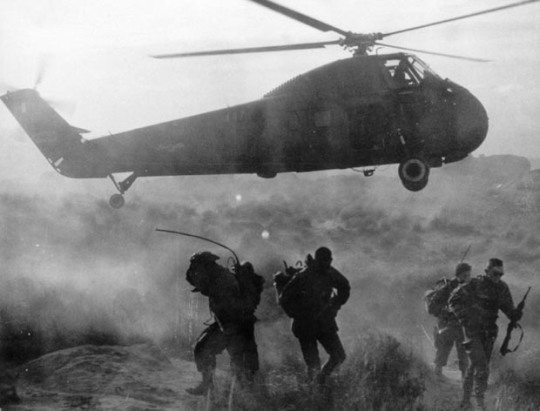
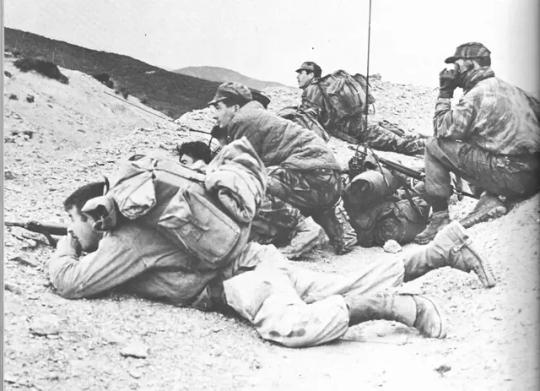
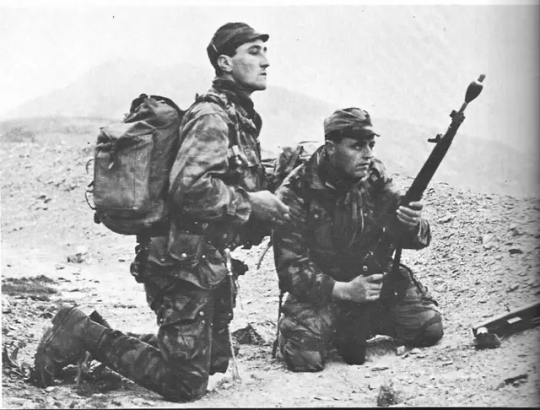
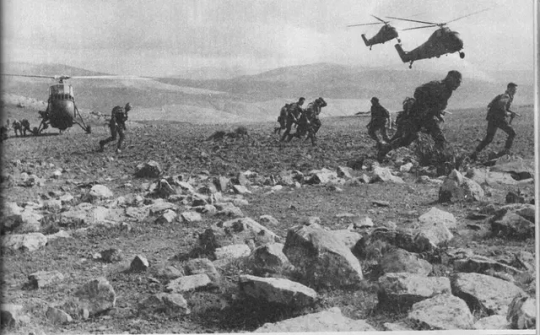
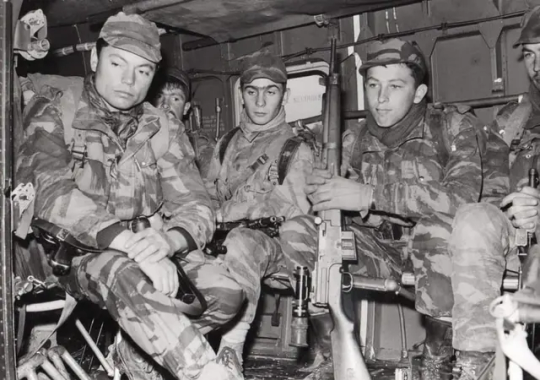

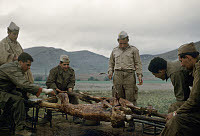
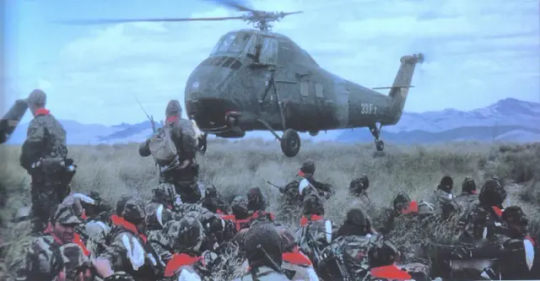
Algerian War of Independence, 1 November 1954 – 19 March 1962 (7 years, 4 months, 2 weeks and 4 days)
19 notes
·
View notes
Note
Where can I learn more about the French communists in Algeria? I don't know if I'm a communist per se but abolishing privately-owned land, if not private property, seems inoffensive. But the idea of whites not sympathasing but throwing their hats in with Muslims amazes me.
France is super ashamed of these people existing. So it’s hard to find informations about them. Only reason I know is because sometimes they are quickly mentioned in books and documentaries about the war and because of a song about October 17 1961 in which the rapper end the song saying “Four months later a lynching in Charonne, the coco who help the b*******” coco being a way to say communist and the b-word is an anti Algerian (now anti Arab) slur. And I was like “wait a minute what does he mean?!” And I googled “Charonne Février 1962” and found out about those communists in France who protested in favor of Algeria and how the police killed them. (9 people were killed 250 were wounded that’s so much less violent than what they did when the protesters were Algerians but still). The full song with the translation are here
In A dying colonialism by Frantz Fanon there’s a whole chapter at the end dedicated to the “European minority in Algeria” about how they are mostly pieces of shit basically but he explains that there was a minority within the minority who considered themselves Algerians and were willing to fight alongside us. Some did it by giving informations and organizing protests some joined the ALN. I remember the testimony of one of them who came back to France during the war and he realized that he didn’t fit at all. He realized that he fit in more with Algerians that he wasn’t French he was Algerian. He says that he didn’t recognize French people as his people but he saw Algerians as his people. So for him the logical conclusion was to go back to Algeria and join the freedom fighters in the mountains.
And that was pretty much the discourse of the freedom fighters in the FLN and the ALN. “You’re fighting for Algeria? You’re Algerian regardless if you are indigenous or not.” And those who fought for Algeria and died were buried in our martyr cemeteries. Shahid (martyr) is supposed to be a religious term but those men and women who were not Muslims still have the title of Shahid because they fought and died alongside indigenous people for Algeria to be free.
Anyway like I said it’s super complicated to find informations about them. But if you want to look into it the stories of Maurice Audin and Henri Maillot are a good start. You’ll have to Google their names cause there’s little ressources because France is ashamed and Algeria put all the moudjahid and shouhada on the same level so we don’t insist on the minority of Europeans who helped. There’s a good and fairly accurate movie about Henri Maillot called “Operation Maillot” but you might not find it. I suspect that it’s been censored cause it’s impossible to find it in France… no legal or illegal platform no way to buy it or rent it. It’s super weird how a movie can disappear that way…
Last thing: The French communists of 1954-1962 have nothing to do with the French communist party now. During the war they were willing to check their white privilege to question things and to help. Now they follow their leader like a bunch of dogs and are often racists and refuse to properly call out police violences.
11 notes
·
View notes
Text
"Among colonized peoples there seems to exist a kind of illuminating and sacred communication as a result of which each liberated territory is for a certain time promoted to the rank of 'guide territory.' The independence of a new territory, the liberation of the new peoples are felt by the other oppressed countries as an invitation, an encouragement, and a promise. Every setback of colonial domination in America or in Asia strengthens the national will of the African peoples. It is in the national struggle against the oppressor that colonized peoples have discovered, concretely, the solidarity of the colonialist bloc and the necessary interdependence of the liberation movements."
Frantz Fanon, “The Algerian War and Man's Liberation,” for Algerian revolutionary newspaper El Moudjahid (1958), trans. Haakon Chevalier in Toward the African Revolution
58 notes
·
View notes
Text
Here's a list of countries that call Hamas a terrorist organization and, by proxy, support Israel.
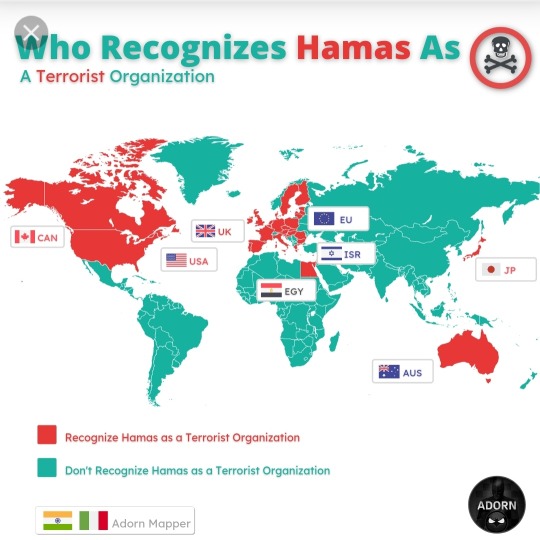
In case you don't see what I see, here's a few examples of why these countries support the colony of Israel. This is by no means an exhaustive list, as my knowledge only goes so far.
USA, Canada and Australia: settler colonies that mistreat the native populations. Canada has and is commiting atrocities to their native population and Australia denied the aboriginals their own council in a referendum voted by...the white settlers.
Spain: Scared of the separatist movements in it's own territory and still celebrates the conquest of America post 1492. The day of the arrival of Colombus to America is celebrated as a national celebration every 12th of October. I live here, I'd know.
France: possessed Algeria until the '60s and actively advocated for an "Israel solution" in Algeria, that is, creating a separate state composed of the french settlers that hoarder the resources. Also killed hundreds of thousands of Algerians to try and stop their independence movement. In short, France walked so Israel could walk.
Germany: uses the fallacy of the Holocaust guilt to follow Israel like a dog. Germany supporting the genocidal regime of Israel shows they don't feel guilty at all. As Germany and France de facto rule the EU, the rest of states follow them as well.
UK: Israel and Zionism were promoted by the British Empire, they're responsible of the existence of the colony of Israel.
Egypt: sold their fellow Arabs to the Israelies after the war that ended on Israel occupying the Sinai peninsula. Egypt was also colonized by the British, so that's the nail in the coffin.
Japan: committed and subsequently got away with, a genocide in China and Korea bigger than the Holocaust with mass rapes and atrocities and and have still to recognize and apologize for the genocide. Employs mass propaganda and historical revisionism to convince it's populace that it was the real victim and/or diminish the Japanese crimes in the early to mid 20th century.
Notice how countries that colonized support Israel and the colonized countries support Palestine.
If you know of any more reasons why these countries would support the settler colony and occupier Zionist entity of Israel please add in reblogs.
#palestine#free Palestine#from the river to the sea palestine will be free#fuck israel#gaza#palestinian genocide#end the genocide#israel#free gaza#gaza strip#israel is a terrorist state#israel is a settler colony
61 notes
·
View notes